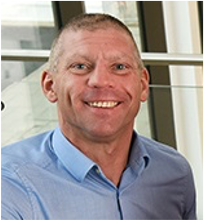Case Studies on Control and Informatics for Smart Energy Systems
Tuesday 24 August 2021 at 3:00PM BST (4:00 PM CET, 10:00 AM EST)
By Michael Short (Teesside University, UK)

Register now using the link below:
https://attendee.gotowebinar.com/register/2565401836993445132
Abstract
Decarbonisation, digitalisation and decentralisation are transforming energy systems across the globe and supporting the transition to a sustainable future. Within this context, smart grids are electrical grids that include a variety of interoperable communication and control devices to optimally (or near-optimally) facilitate the production and distribution of electricity. Smart grids allow for better integration and management of volatile renewable energy sources, flexible transmission resources, energy storage devices, electric vehicles, Microgrids and controllable loads; they are seen as key enablers in the decarbonisation of both the industry and society. This talk will outline innovative and disruptive services for energy conversion, management and control developed over the course of a decade and involving several funded research and innovation projects, including the IDEAS, DR-BoB, InteGridy and REACT EU-projects. The talk will first focus upon describing the types of real-time asset control and optimization problems which can arise on both energy supply and demand sides, and associated informatics and distributed control issues related to asset dispersion over wide areas. It will then progress to describing solutions which generate coordinated, optimal (or near-optimal) dispatch instructions for generation and consumption assets in real-time within and IoT framework. The talk will then present simulation and practical results from case studies related to dispatch of Combined Heat and Power (CHP) Plant, domestic Smart Appliances, Offshore Wind Turbines and also commercial Heating, Ventilation and Air Conditioning (HVAC) loads. Finally, it will outline some of the open issues and challenges in related Smart Grid areas which should be of interest to the wider industrial engineering community.
Presenters’ bio
Michael Short is a professor of control engineering and systems informatics at Teesside University and leads the multidisciplinary Centre for Sustainable Engineering. He holds a BEng degree in electronic and electrical engineering (1999, Sunderland) and a PhD degree in real-time robot control (2003, Sunderland). Michael’s research interests encompass aspects of applied control engineering and systems informatics applied to smart energy systems and robotics. He has authored over 150 reviewed publications in International conferences and journals, has received over 1300 citations and has won five best paper awards at international conferences. He currently has an h-index of 21 and an i-10 index of 37. He has supervised six PhD completions and is investigator on numerous completed and ongoing funded research projects. He is an associate editor for the International Journal of Energies, a full member of the IET and a fellow of the HEA.

